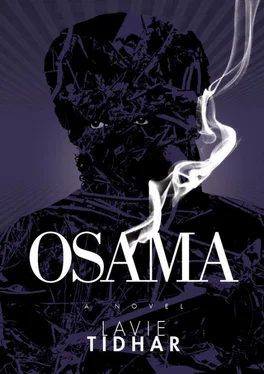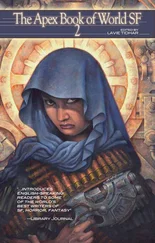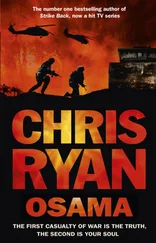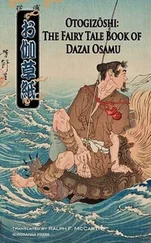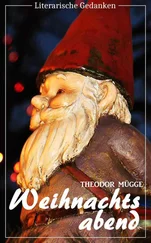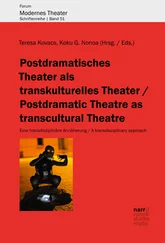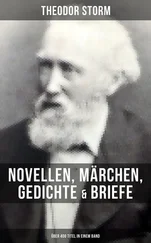A man was climbing into a stretched black Mercedes parked outside Joe’s building. Joe caught sight of polished black shoes disappearing inside. Then the door was softly closed shut, the tinted windows allowed no gaze inside, the powerful German engine purred to life, and the car pulled out into the road. ‘Wait!’ Joe shouted, and he ran towards the car, which was already speeding away. A scooter went past him, too close, and a boy in a student’s uniform said, ‘Watch where you’re going, asshole!’ as he sped away. Joe cursed. The black car was ahead of him and gaining speed. He ran after it. An elderly lady cycled past him, her bicycle loaded with egg trays. She looked at him sideways with a bemused expression. ‘Stop!’
The car wasn’t stopping. But a window rolled down on the right-side of the back seat, and a hand emerged, holding a shiny object, and Joe stopped, not believing what he saw. It was a gun.
The shots echoed loudly in the street. The old lady swerved, her bicycle wavered, and then she fell, the bicycle skidding away across the hot tarmac, the trays coming loose from the strings that bound them, releasing their load of fresh eggs onto the road, where they rolled and burst, covering the tarmac in a yellow-white coat of paint. At the first sound of a shot, Joe fell facedown onto the road and rolled away towards the pavement. The hand withdrew into the Mercedes. As the window rolled back up a piece of paper caught, perhaps, in the updraft, came floating out of the window. The car sped away and soon disappeared behind the bend.
Joe stood up. He was shaking. He ran to the old woman, but she had not been hurt. He helped her up. She too was shaking. She did not speak to him. She watched the broken eggs on the ground and began to cry, without sound, the tears flowing down her lined face, like water through a web of ancient Roman aqueducts. Joe went to her bike and picked it up. She took it from him without a sound. She would not look at him. Other people had come out to watch. They stood outside the shop-fronts and gazed, pointing and murmuring between themselves. Joe cursed and decided it was time to be gone from there. ‘Here,’ he said, offering the woman some money clumsily. ‘For the eggs.’
She took the money from him without comment, tucking it away in a hidden pocket. When she walked her bike to the side of the road a group of women descended on her, escorting her to the shade and offering her tea. The woman gave them a small, sad smile. No one seemed to pay Joe any attention.
Good.
As he turned to go, a piece of torn paper hit him on the face and he snapped at it, his anger suddenly released, and he crumpled it into a ball with one violent motion.
They had shot at him. Why the hell had they shot at him? He jogged away from there as a bus went past and left yolky tire-marks on the asphalt. When he got to his building he went right in, climbing up to his apartment and locking the door behind him. Then he stood with his back to the door, taking deep breaths. He brought his hand to his face, and realised he was still holding the ball of paper. He smoothed it open and looked at it. A dirty scrap of old newspaper, barely-legible but for the date: eleven September, two thousand and one. He shrugged, crumpled it back into a ball, and went to deposit it in the rubbish-bin. Then he packed up some clothes, threw in the three books, and left the apartment.
On the eleventh of September, nineteen seventy three, at zero seven hundred hours, the Chilean Navy had taken over Valparaíso. By zero eight hundred, the Army held Santiago. By zero nine hundred hours, the Army had control of most of the South American country. In his final speech, President Salvador Allende said, ‘They have force and will be able to dominate us, but social processes can be arrested by neither crime nor force. History is ours, and people make history… These are my last words, and I am certain that my sacrifice will not be in vain, I am certain that, at the very least, it will be a moral lesson that will punish felony, cowardice, and treason.” By twelve hundred hours, Hawker Hunter jet fighter planes finally arrived over the presidential palace in downtown Santiago. They dropped their load of bombs over the palace. Allende died shortly after. One story has it that he died by his own hands, with an AK-47 rifle that was a gift from Fidel Castro, and was engraved on a gold plaque: ‘To my good friend Salvador from Fidel, who by different means tries to achieve the same goals.’
The Army Commander-in-Chief, Augusto Pinochet, became president of Chile.
It was an event few knew or cared about outside of Chile. Over the next several years, thousands of people died or disappeared. The Chilean national stadium was used as an internment camp for over forty thousand people. In one instance, an army death-squad called the Caravan of Death, or Caravana de la Muerte, flew across the country by helicopters, carrying out executions. Overall, at least three thousand people had died.
Was the United States behind the coup? ‘We didn’t do it. I mean we helped them,’ Secretary of State Henry Kissinger told President Nixon five days later over the phone. The time was 11:50 A.M. The conversation began with football.
‘Nothing new of any importance, is there?’ the president had asked.
‘Nothing of very great consequence,’ Kissinger had said.
When he heard of Allende’s election to president, the U.S. Ambassador to Chile, Edward M. Korry, said, ‘We shall do all within our power to condemn Chile and all Chileans to utmost deprivation and poverty.’
A communiqué to the CIA base in Chile on the sixteenth of October, less than a month before the coup, stated: ‘It is firm and continuing policy that Allende be overthrown by a coup… We are to continue to generate maximum pressure toward this end, utilizing every appropriate resource. It is imperative that these actions be implemented clandestinely and securely so that the USG and American hand be well hidden.’
It was a date few remembered outside of Chile.
the imprisoned singing of live frogs
——
‘Where to, Mister?’ the tuk-tuk driver said. His name was Mr. Kop and he was high on life, and amphetamines.
‘The airport,’ Joe said. Mr. Kop cranked up the engine and grinned. ‘Bor pan yang,’ he said, ‘bor pan yang. No problem, no problem. Mr. Kop he take you any place you want go.’ The engine made the tuk-tuk-tuk sound that had given the vehicle its name. Mr. Kop released the gear and sped off down the road, Joe holding on at the back, the artificial wind coming through, cooling against his scalp.
They had tried to shoot him. Why would anyone want to shoot him?
The worst moment was outside, just before he had hailed down Mr. Kop. Indecision. An irrational part of him wanted to head over the Mekong, into Siam and a train or bus to Bangkok, or disappear entirely in that great empty space of the continent that lay beyond the river: isolated villages, small fields, a scarcity of roads, a great open silence.
It only lasted a moment and then he dismissed it and Mr. Kop had stopped for him and he told him the airport. Mr. Kop drove as fast as his ancient vehicle allowed him, taking every bump on the road with relish, singing to himself as he drove, and grinning and twitching a little. Soon they were on the smooth, wide road to the airport and the Mekong was visible, still dry, the rains having not yet filled it up. The distant sand-banks had the colour of Mr. Kop’s teeth. Joe leaned back and stretched out his legs. He thought fleetingly about the girl.
He paid Mr. Kop outside the terminal building and went inside. He had seen no black cars along the road. He came to the TransAtlantic Airways desk and a girl looked up at him with a pleasant smile. His ticket was there, ready, and the girl directed him to Gate Three. The terminal was small, old but clean. The concrete floor was worn smooth. The sunlight streamed in through high windows. He bought himself an espresso at the kiosk by the entrance and sipped it standing up outside. He lit a cigarette and watched people come and go past.
Читать дальше
